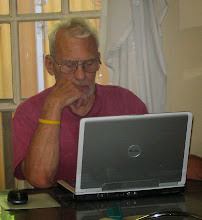That Radio Nightmare
I was on the air in radio from 1949 until 1974. At the first station where I worked, we had no recording equipment for recording commercials. Tape recorders were not yet available, we could not afford a disk recorder. As a result, all commercials were read "live".
When I was hired by a station in Kansas City, we had a disk recorder that would record onto blank acetate disks. We used it for recording commercials as well as program intros, promotional announcements, etc.
The disk jockey worked with four turntables. At any given moment, one would be playing the current record on the air. The next would have the first commercial disk cued and ready. The third turntable may be loaded with a recorded station break jingle, and the fourth with a second commercial.
When the music record ended and the disk jockey finished his comments, he played the recording of the first commercial. While it was playing, he took the music record off the first turntable, replaced it in the file, and cued whatever recording was to follow the last record already cued. With station break jingles, weather report intros, recorded commercials, contest promotion recordings, etc., a deejay may play five or six recordings between music records. Most commercials were recorded at 33 1/3 RPM, our music was either 33 1/3 or 45 RPM, so it was vital that each turntable be set at the correct speed.
It was a mad rush of loading disks on turntables, removing and filing other disks, and making whatever live comments required - such as the current time and temperature. That was why we were called disk jockeys, we really jockeyed stacks of recordings.
There could be no "dead" air, so to play a disk, we had to load it on a turntable, set the needle in the first groove, switch the turntable to a "Cue Amplifier" and spin the turntable until the first sound was heard. then the disk was stopped, backed up about a quarter turn, and switched back to an on-air position. When the turntable was switched on, the sound would start almost immediately. We had other tricks, such as "slip start" to help prevent dead air.
When we finally got the next music record on the air, we had to check our program log and get everything ready for the next break... plus, write in the program log the time each commercial was aired, etc. It was a job that required absolute concentration, and the worst possible situation was to be caught unprepared. For example, you play a weather jingle recording, then suddenly realize you had forgotten to check for the current temperature.
It has been over 30 years since I retired from radio broadcasting. Yet, every now and then, I dream I am on the air and everything has gone wrong. The next commercial disk I need is out of reach. I am trying to ad lib something on the air so I cannot leave my chair and find the disk.
Or, perhaps I have neglected to keep my program log up to date and cannot remember for sure if I played every commercial that was on the log. I wake up, literally shaking.
For years, I thought I was some sort of nut. Then, recently I was visiting with another retired radio man. I mentioned something about my dreams and he said, "Oh, the radio nightmare", and admitted he had those dreams also.
Sunday, October 23, 2005
Subscribe to:
Post Comments (Atom)

No comments:
Post a Comment